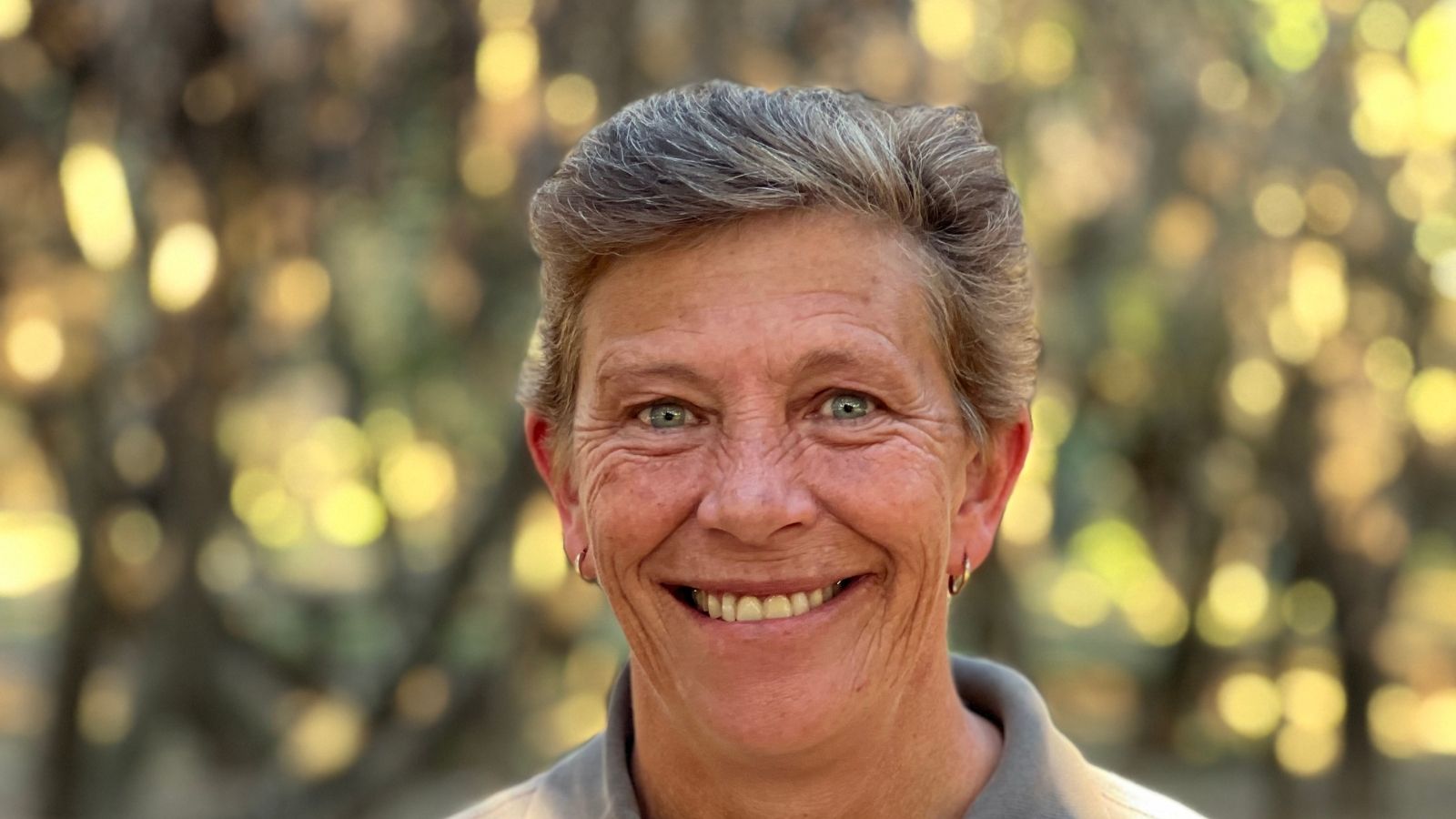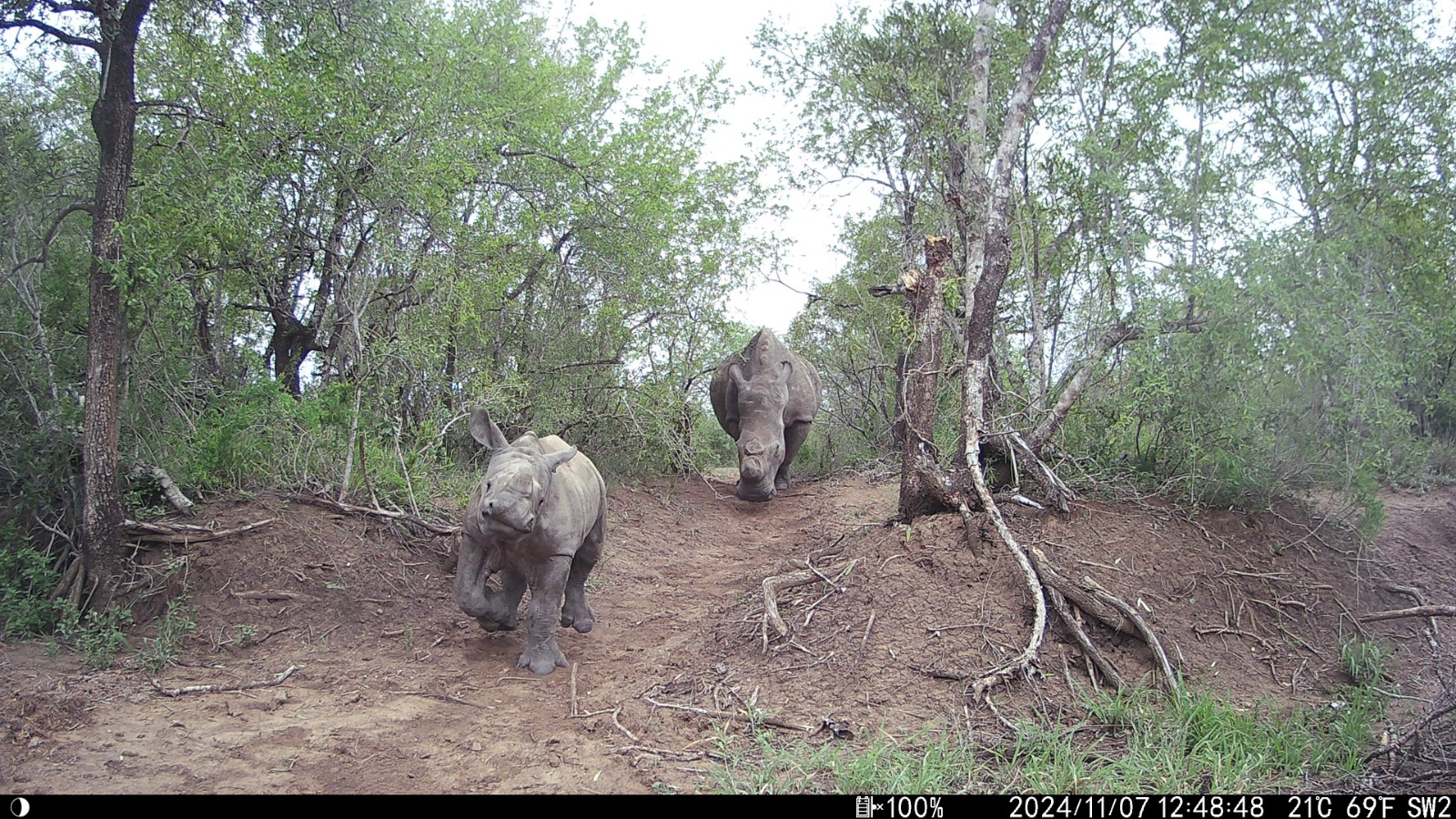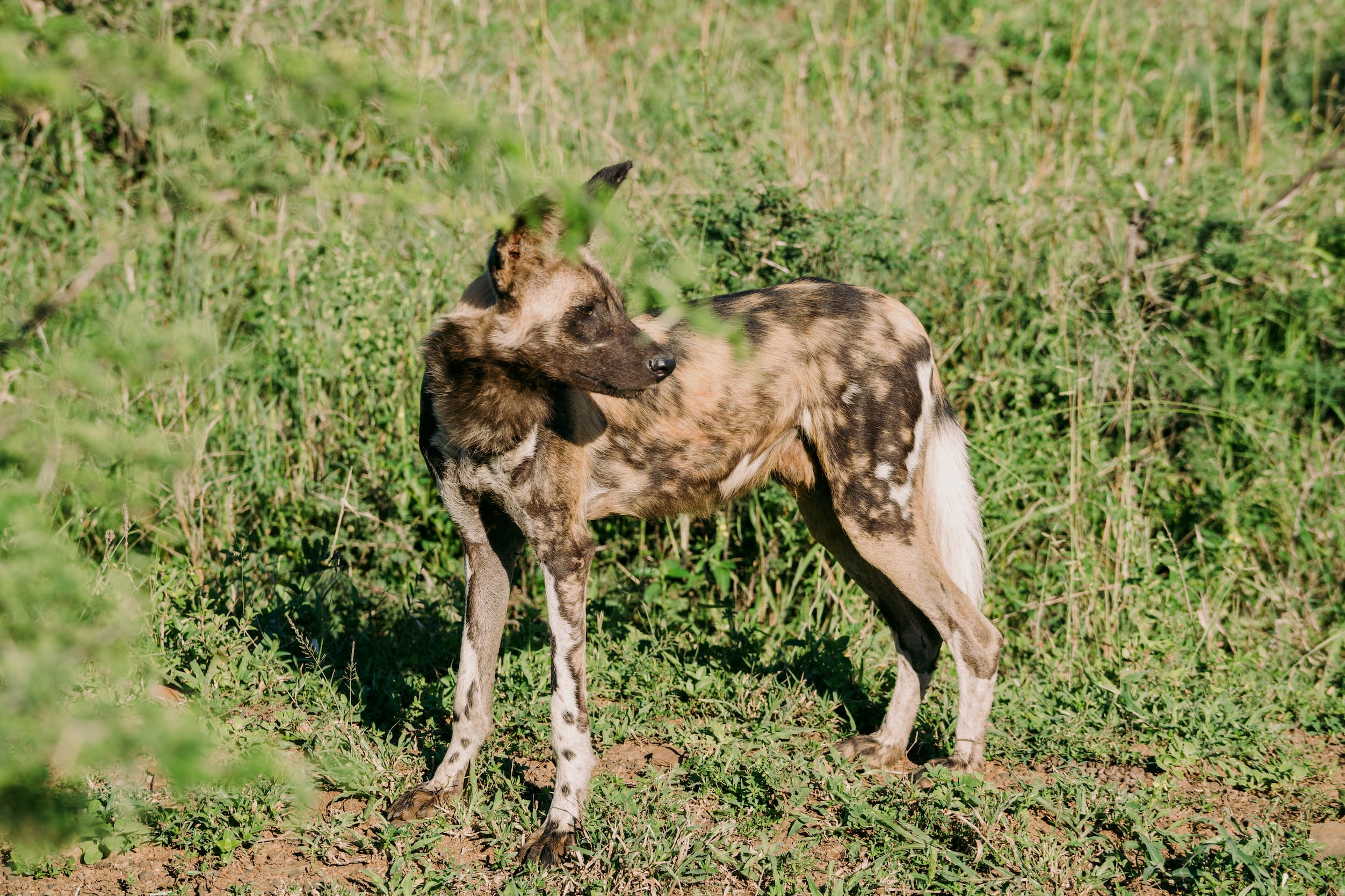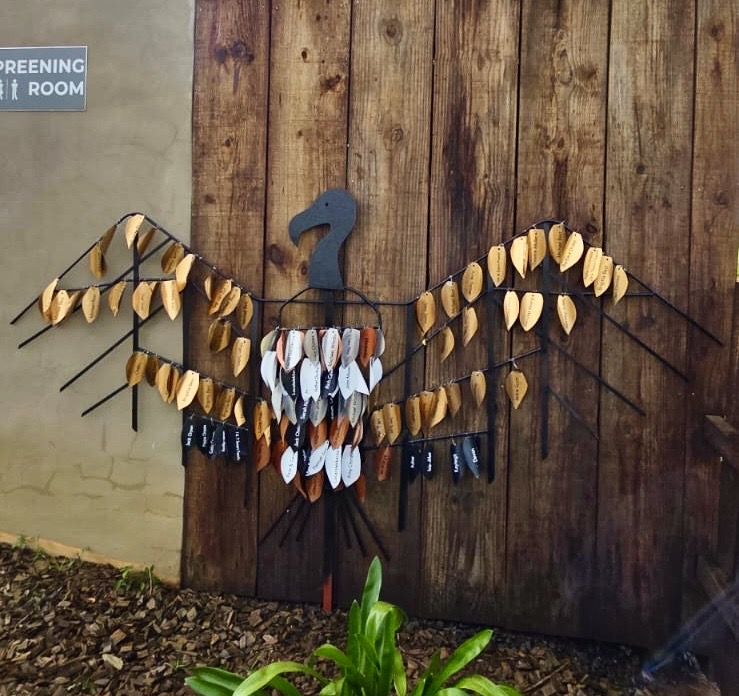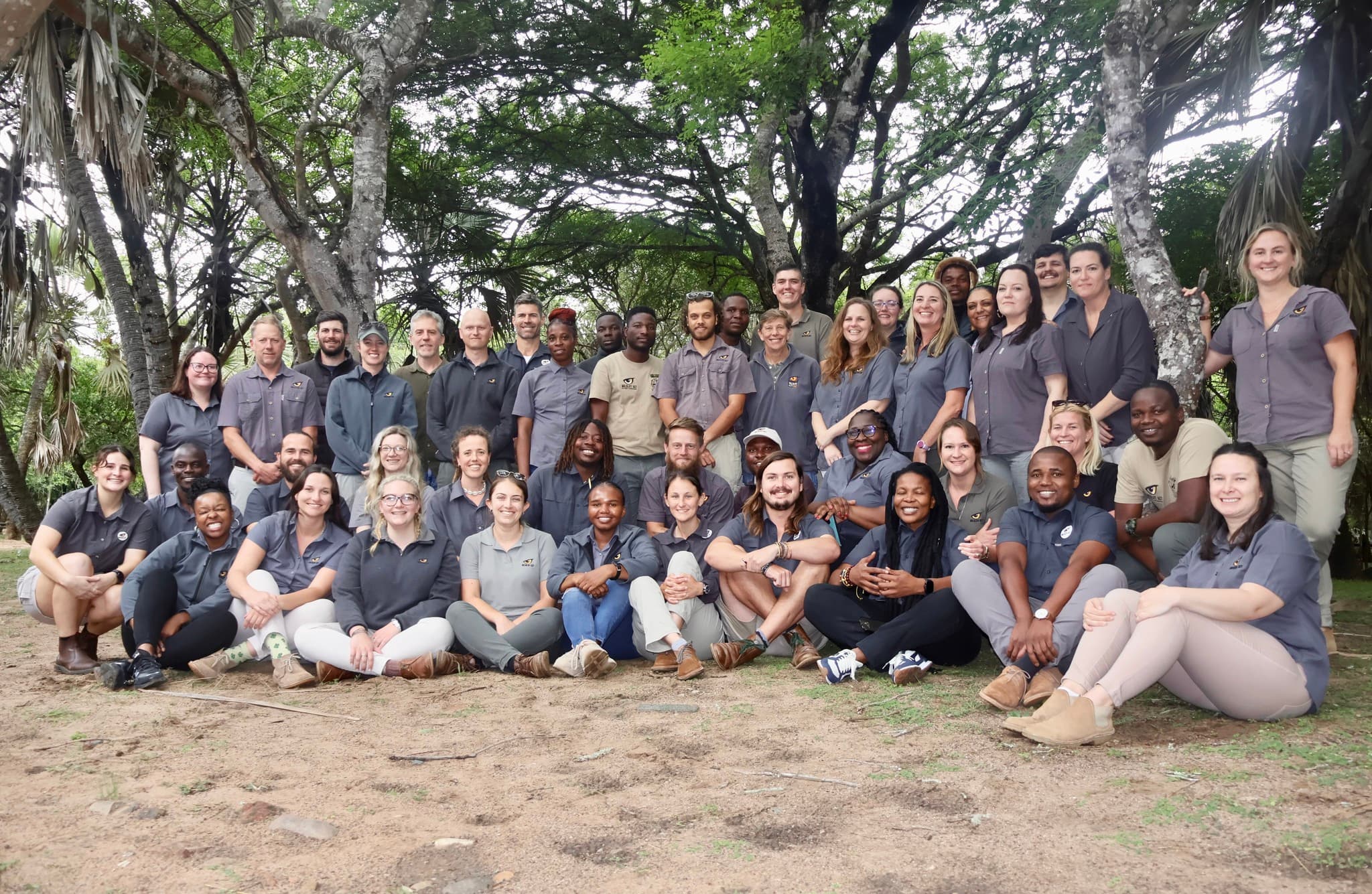On Saturday, 5 April 2025, conservationists, land owners and operators, NGOs, hunters, and ammunition stakeholders gathered despite wet and muddy conditions for the inaugural Battle of the Bullets - Zululand edition. This pioneering awareness event aimed at reducing the devastating impact of lead-based ammunition on South Africa’s ecosystems and wildlife.
Hosted by Wildlife ACT, BirdLife South Africa, the Zululand Vulture Project, the Endangered Wildlife Trust, Ezemvelo KZN Wildlife, and Pongola Game Reserve, the event sparked vital conversations and hands-on learning about safer ammunition alternatives. The initiative was supported by Wim Landman, co-owner of Pongola Game Reserve, who hosted the event on this Protected Area in Northern Zululand.

Lead Ammunition: A Silent Threat
Lead remains a hidden but deadly threat in conservation, particularly for South Africa’s vulnerable vulture population. When animals are hunted using traditional lead bullets, the resulting carcasses often contain fragments ingested by scavengers like vultures, leading to lead poisoning, which can sometimes be fatal. This exacerbates the decline of vulture populations in southern Africa — a region already grappling with habitat loss, poisoning, and other threats to this vital species.
“Lead fragments are slow and silent killers,” explained Anel Olivier, Species Conservation Director at Wildlife ACT. “Even small amounts can have devastating consequences for vulture health, many of which are already critically endangered. This event was about raising awareness, educating the willing, and finding effective solutions.”

“Poisoning is a serious threat to vulture populations and other species worldwide,” added Danielle du Toit, field officer for the Endangered Wildlife Trust’s Birds of Prey Programme. “While lead-free ammunition has been assumed to be unreliable, costly and inaccessible, we are seeing a gradual, yet welcome, shift towards the use of lead-free ammunition by, for instance, farmers and hunters.”
Showcasing Lead-Free Ammunition
Central to the day was a series of practical ammunition demonstrations, showcasing a variety of South African-made lead-free alternatives. Cartridges were tested in gelatine blocks to replicate ballistic performance, which served as a powerful visual demonstration of terminal effects and bullet integrity. The tests were conducted by Justin Henry, Vulture Conservation Officer at BirdLife South Africa, and under the guidance of Wynand Bezuidenhout, a PhD candidate in ballistics, whose expertise added scientific rigor and credibility to the conversation.
These demonstrations addressed common concerns surrounding non-lead ammunition: terminal performance, accuracy and reliability. Participants witnessed first-hand how modern lead-free options perform comparably to traditional ammunition, offering a practical pathway forward.

Shared Purpose, Different Perspectives
“Battle of the Bullets is all about collaboration,” said Henry. “The event showed that, with guidance from experts and lead-free manufacturers, best practices for using lead-free ammunition are achievable. The alternatives are effective and can significantly reduce lead exposure.”
Attendees spanned the ammunition, hunting, conservation, and land-use sectors, with each bringing a unique perspective to a shared problem. The event highlighted how open dialogue and hands-on education can build mutual understanding and move all sectors toward a safer, more sustainable future.
The Bigger Picture: Vultures and Ecosystem Health
Vultures play a critical ecological role by cleaning up carcasses and preventing the spread of disease. Their disappearance would ripple through ecosystems, threatening both biodiversity and human health. Protecting these species requires addressing all major threats, including the widespread use of lead ammunition.
“By addressing this issue now, we have a chance to prevent the loss of these extraordinary birds before it’s too late,” said Olivier. “But this isn’t just about saving vultures — it’s about protecting the health of entire ecosystems, our livestock, and our own communities. When lead enters the food chain, it doesn’t stop with wildlife. Consuming contaminated meat can cause severe health problems in people, including neurological damage and other life-threatening conditions. We have a responsibility to act, both for their survival and for our own well-being.”
Unlocking Incentives for Conservation
The event also included a presentation by Ellané van Wyk, Head of Impact at the Sustainable Finance Coalition, on Biodiversity Tax Incentives, which is a tool that allows landowners to receive tax deductions for managing land in ways that support conservation. These incentives offer real financial benefits for those safeguarding red-listed species and protecting natural habitats.
“These kinds of incentives are absolutely vital for long-term conservation funding,” said Henry. “They empower landowners to contribute meaningfully to species protection while receiving the recognition and support they deserve for their environmental stewardship.”

Looking Ahead
The Battle of the Bullets was well received, with attendees expressing appreciation for its open format, credible science, and practical demonstrations. Organisers are now looking to expand the initiative and invite further participation in future events.
For more information about environmental tax incentives, read the guide here: Environmental Tax Incentive User Guide
Partners: Wildlife ACT, BirdLife South Africa, the Zululand Vulture Project, the Endangered Wildlife Trust, Ezemvelo KZN Wildlife, and Pongola Game Reserve.



.jpg)
